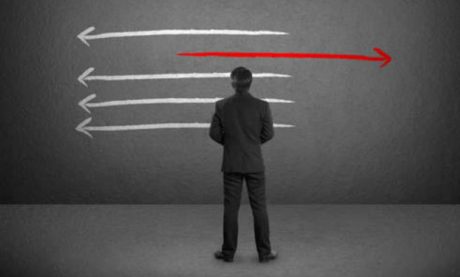
If Rappler people were true dyed-in-the-wool hipsters, believers in the real essence of “online journalism”, and secure in their organisation’s position as a self-described nexus platform for online “thought leadership”, then it wouldn’t matter to them how they are classified — much less even bothered the least bit by what “Die-hard Duterte Supporter” (DDS) bloggers such as Mocha Uson have to say about them.
Yet what we are seeing today is not consistent with this hipster brand. Various cliques of Filipino “liberals” and other high-horsed defenders of “press freedom” have been raising a stink in recent days over an initiative Uson mounted to kick Rappler off the Malacanang Press Corps (MPC) and reclassify it into a “social media entity”. The arguments Rappler issued on the matter draw upon the established by-laws of the relevant agencies and communities involved in the brouhaha…
| SUPPORT INDEPENDENT SOCIAL COMMENTARY! Subscribe to our Substack community GRP Insider to receive by email our in-depth free weekly newsletter. Subscribe to our Substack newsletter, GRP Insider! Learn more |
1) Rappler is an independent private media company. Because the Constitution guarantees freedom of the press (Article III, Section 4), government does not have the power to regulate independent media.
2) The Malacañang Press Corps (MPC) is an independent group unattached to any government agency. It is neither under government control nor under the supervision of the Presidential Communications Operations Office (PCOO).
MPC by-laws are explicit on accreditation and cover online news organizations like Rappler. Section 2 under “Qualifications for MPC Membership” states: “For internet-based media, the reporter must represent a website affiliated with a duly-recognized print/radio/TV agency, or established online news organization with regular deployment of personnel in major beats.”
3) The PCOO’s Interim Social Media Practitioner Accreditation covers only individuals and not news organizations. Section 5 of the PCOO’s Department Order 15 is categorical: “Social Media accreditation shall be issued to a Filipino Citizen who is at least eighteen (18) years of age, with not less than five thousand (5,000) followers in any social media platform.”
The ensuing debate, as expected of the small-minded manner with which these sorts have traditionally tackled these issues, is framed within the little square drawn above by these so-called “thought leaders”. But if we stop and think outside of this square and regard this from a more intelligent perspective, we get around to asking: Does all of that even have to matter to a self-described hot-shot crack team of 21st-Century ‘online journalists’?
The irony that seems to fly way above the pointed heads of Rapplerites is that this effort to cling on to Establishment guidelines and rules runs counter to the notion of the Internet their prophet-CEO Maria Ressa has been pitching to anyone who cares to listen — that the Net is an all-encompassing platform that empowers ordinary citizens to break traditional barriers to self-expression and access to a mass audience. It is quite interesting, given that Ressa has tirelessly preached this tiring mantra, to now see her Rapplerites reduced to little girlies blubbering over being kicked out of their little sandbox.
Indeed, these Rapplerites should really see what they are doing here which is begging that their insider status within an Establishment their own chief “thought leader” had been claiming has been rendered obsolete by the Net be sustained and protected.
True hipsters routinely thumb their noses at the Establishment and thrive in being outsiders. Indeed, the immense brand equity enjoyed by real bloggers and real citizen journalists is backed not by the contrived credentials hung upon them by Establishment authorities but by the trust they organically earn from the free-agent elements that inhabit the Darwinian jungle that is the free market of ideas. It seems Rappler had lost its own plot — the plot woven and incessantly clucked about by its own CEO and founder since it bubbled up into existence in 2012. Rather than rise on the back of free market forces, Rappler now sadly relies on the pieces of paper pushed by the very bureaucrats it once regarded as part of the old order that, in more idealistic times, it did not aspire to be part of.
- “Press freedom” activists and leftist groups up in arms over conviction of commie “journalist” Frenchie Mae Cumpio on charges of terrorist financing - January 23, 2026
- Why are Filipinos so irrevocably corrupt? - January 22, 2026
- Vice Ganda for president of the Philippines: just what Filipinos need! - January 17, 2026
We would say this Rappler…
Creativity is the new currency, so, are you credited with new thoughts or overdrawn in old thinking?
Accrediting Social Media ? Accrediting Bloggers ? What a stupid way to think. They have been trying to control and Police the CyberSpace, ever since. They cannot even, Police the roads, streets and highways, from reckless drivers; who drive , as mad as hell. And these reckless drivers don’t follow any traffic rules. How can they Police the CyberSpace ?
Maybe, they will haul, BenignO and the GRP bloggers to jail, for not being accredited. Their ideas are too dangerous to society. Ban them from the CyberSpace !
What we want is a : Free Market of Ideas and Opinions. A free and sensible kind of discourse and debates. A free flow of information.
Are these idiots afraid of us ?
maybe Rappler’s spin doctors could answer this: in de lima’s case base on evidence, her appearances inside the bilibid prison partying with the drug lords and photos of her with drug syndicates, ‘illegal drug trade and conspiracy to commit drug trade’ is the same. how could you break that into two?